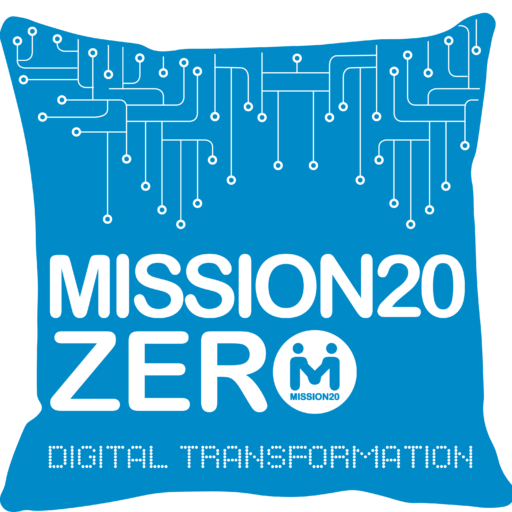The end of the COVID-19 pandemic is in sight with the first vaccines being made available in Singapore, along with opportunities that will be up for grabs when it does.
To capitalise on this, small businesses like yours are positioning themselves to seize these opportunities by modernizing their IT functions, including shifting their ERP software to the cloud.
Find Out About The Five Benefits That Cloud ERP Offers Small Businesses In A Post COVID-19 World.
Major ERP vendors such as SAP have noted this pandemic-accelerated trend as well, and are also shifting away from their tradition on-premise business model towards the cloud as well.
As such, there’s no better time for your small business to make the transition towards cloud ERP software, and position itself to seize the day in a post-pandemic world.
But even so, we understand that you might still have some reservations about making the leap. Let us take you through the five most compelling advantages about cloud ERP, that should address your greatest concerns about making the move.
1. You Can Manage Immediate Cash Flow Questions With Lower Cost Of Entry

Traditional on-premise ERP software comes with a high initial capital expenditure (CAPEX), as you’d need to spend a hefty amount of your budget on investing in server hardware and perpetual licenses.
On top of that, going with an on-premise ERP also means you’d need to factor in the cost of maintaining your servers, and spending the resources of your business’s IT function on keeping your ERP software up-to-date.
With such high upfront costs, an on-premise ERP software may prove to be a heavy burden on the limited budget of your SME.
Compared to this, cloud ERP does not require servers, and thus have negligible CAPEX. They work on a monthly subscription model, so you can budget for them as part of your operational expenditure (OPEX).
As a small business, you even have the option to start with a small number of licenses, and pay for more as your business grows.
This means that even taking the recurring costs of its subscription model into account, cloud ERP have a lower cost of entry than their on-premise equivalents, which makes them the more flexible option for your budget.
2. Your Software Will Scale and Grow Along With Your Business

On-premise ERP software have issues with scalability, as it usually means you’d need to invest in additional server hardware.
For a small business like yours which operate on a growth-focused business strategy, this means that scaling up an on-premise ERP would not only incur even more costs, but also require more time to acquire the hardware.
This can conflict with your business needs, which can see seasonal fluctuations based on your business cycles, or high volume of transactions on specific days in a month.
And with Phase 3 of the reopening of Singapore imminent, along with vaccines soon to be available, you’re going to need a growth strategy for the upcoming recovery of the economy in 2021.
You’d need an enterprise software that can be easily scaled up in line with the growth strategy of your SME, and cloud ERP fit the bill perfectly here.
With cloud ERP, you can sign up for additional modules or add capacity with the click of a button, and your software will bring the new capacity online almost immediately.
And you’d only need to pay additional licensing fees to scale up your cloud ERP. This makes them an extremely attractive proposition for SMEs like yours.
3. You Can Expect Faster, Shorter Implementation Timelines

Back in the 1990s, the timelines for implementing ERP software would range from a year or two on average.
This was because businesses needed to acquire and install server hardware on their premises to host the on-premise ERP, and such lengthy timelines were a huge deterrence to the wider adoption of ERPs by small businesses.
It is only with the advent of cloud ERP software that these timelines have come down, as they’re hosted on the partner’s or vendor’s servers and thus eliminate the need for businesses to maintain on-premise servers.
And with rapid deployment methodologies such as NetSuite SuiteSuccess, you can further reduce the time needed to implement a cloud ERP software.
Therefore, if what you need is to implement and deploy an ERP software as soon as possible to support the processes of your small business, a cloud ERP would be the better option for you.
4. You’ll Have the Assurance of World-Class Data Security

With an on-premise ERP software hosted on server hardware located within your office premises, your IT function would be directly responsible for maintaining the data security of your small business.
You might assume that your data is reasonably secure in this case, since your hardware and ERP software is within your direct control.
However, large enterprises spend millions of dollars every year on maintaining data security, yet we read about them being hit by security breaches, malware attacks etc. every day.
It’s fair to assume that small businesses like yours do not have the budget to spend in the same manner. Data security is thus best left to the experts.
This is another aspect where cloud ERP systems have an advantage over their on-premises counterparts. Top tier vendors like Oracle, SAP, and Microsoft have invested to ensure that their data centres have top-tier security architecture.
These are audited by third-party auditors at regular intervals, the results of which are available online for review.
An integral aspect of security is vulnerability assessment/detection & patching. As and when a vulnerability is detected, cloud ERP vendors can prepare a patch and apply it on their client instances. This rapid response to threats also makes them agile & responsive.
With your ERP vendors taking up the responsibility of securing your business data on their servers, your small business can avoid the high costs of doing so with a cloud ERP system.
5. You’ll Always Get the Latest Product Updates – At No Extra Cost

As time goes by, your small business will need to upgrade its ERP software to the latest version to access new features, or replace an obsolete version.
In the case of an on-premise ERP, you’d most likely end up starting a project to carry out the necessary upgrades, whether it be to the ERP software or the underlying server infrastructure supporting it.
That means your business would have to incur the necessary downtime and personnel costs for these upgrading projects, consuming valuable resources.
In comparison, the top-tier vendors of cloud ERP systems are continuously working on additional features and fixing bugs, and provide product updates to customers like yourself at no extra cost.
These product updates are also seamlessly carried out by the vendors themselves, so it’s not necessary for your small business to incur downtime in order to get the latest features and fixes for your ERP software.
It means your business won’t have to dedicate resources to keeping its cloud ERP systems up-to-date, and focus on its core value proposition and promote the growth of the business.
Cloud ERP Are The Better Choice For SMEs
Cloud ERP systems offers significant advantages over their traditional on-premise counterparts, that are especially beneficial for small businesses and their particular business needs.
In summary, these are the five reasons that cloud ERP systems have proven their worth as the better choice over on-premise ERP:
- They are extremely cost-effective and provide higher Return on Investment (ROI)
- They are easy to deploy and the business can start using the solution immediately
- They can be scaled up or down as per the needs of the organization
- They provide a higher level of data security at a fraction of the cost
- They keep getting updated with new features from time to time
Thanks to these reasons, cloud ERP systems make a solid case for higher adoption rates amongst SMEs like yours.
And these are just some of the benefits of transitioning your business to cloud computing, such as with a cloud ERP. To find out what other economic and strategic benefits such a move might bring for your business, click the image below to learn more.


Recent Comments